Search
Search Results
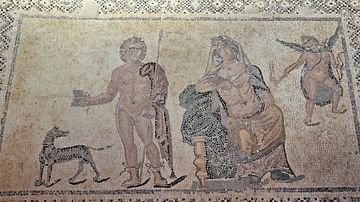
Definition
Phaedra
Phaedra is a princess of Crete and the wife of the Greek hero Theseus in Greek mythology. She is one of the main characters in Euripides' (c. 484-407 BCE) Greek tragedy Hippolytus, which recounts how her love for Thesesus' son Hippolytus...
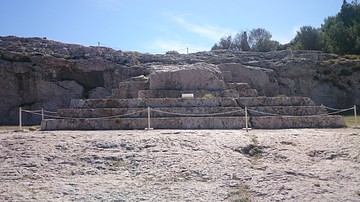
Definition
Critias
Critias (l. c. 460-403 BCE) was an Athenian politician, poet, and playwright, one of Socrates' followers, Plato's second cousin, a leading member of the Thirty Tyrants of Athens, and leader of the oligarchy they established. He is referenced...
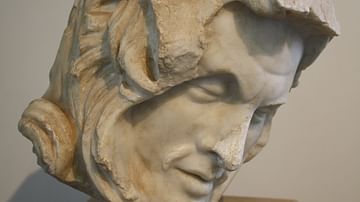
Definition
Peace of Callias
The Peace of Callias (aka Kallias) refers to a possible peace treaty made in the mid-5th century BCE between Athens and Persia following the Persian Wars. The existence of such a treaty is not agreed upon by all historians, and if it did...
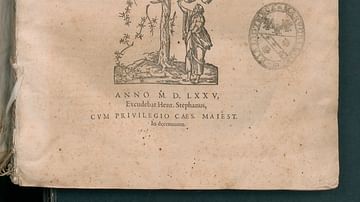
Definition
Arrian
Lucius Flavius Arrianus, commonly known as Arrian (86 - c. 160 CE) was a Greek historian, philosopher, and statesman from Nicomedia, capital of the Roman province of Bithynia. Arrian is recognized as one of the most renowned authors of the...
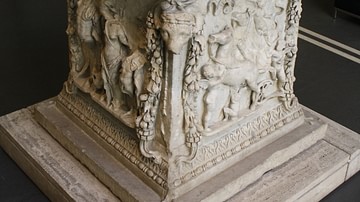
Definition
Roman Religion
In many societies, ancient and modern, religion has performed a major role in their development, and the Roman Empire was no different. From the beginning Roman religion was polytheistic. From an initial array of gods and spirits, Rome added...
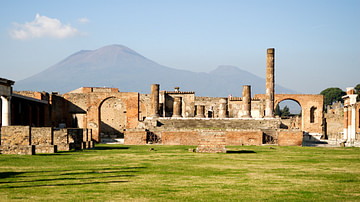
Article
A Visitor's Guide to Pompeii
Visitors to Naples and its surrounding area could be overwhelmed by the number of archaeological wonders to see. Buried for centuries beneath tons of volcanic ash and debris, the archaeological sites scattered along the coast of Naples are...
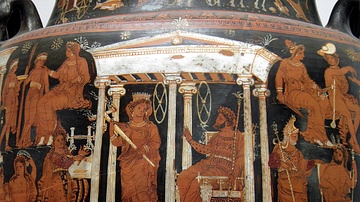
Image
Apulian Volute Krater with Scenes of the Underworld (detail)
Apulian red-figure volute krater with scenes of the Underworld, c. 340-330 BCE. Hades sits enthroned in the palace beside a standing Persephone, who holds a four-headed Eleusinian torch. The god wields a bird-tipped staff. (Staatliche Antikensammlungen...
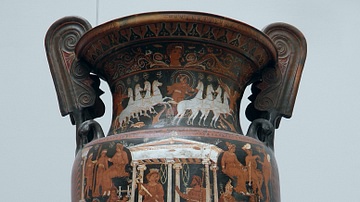
Image
Apulian Krater with Scenes of the Underworld
Apulian red-figure volute krater with scenes of the Underworld, c. 340-330 BCE. Hades sits enthroned in the palace beside a standing Persephone, who holds a four-headed Eleusinian torch. The god wields a bird-tipped staff. (Staatliche Antikensammlungen...

Video
Oracles of Ancient Greece
Oracles in the ancient Greek world were the way in which the people of Greece could communicate with their gods. Gods couldn’t be communed with directly, so an oracle, who was often a woman, was the person that the gods spoke through, acting...

Video
Poseidon the Ancient Greek God of the Sea and Horses
Poseidon in ancient Greek mythology was the god of the sea, horses, earthquakes and storms, floods and droughts, and was also a protector of mariners. Due to his governance over natural disasters like storms and floods, Poseidon was probably...